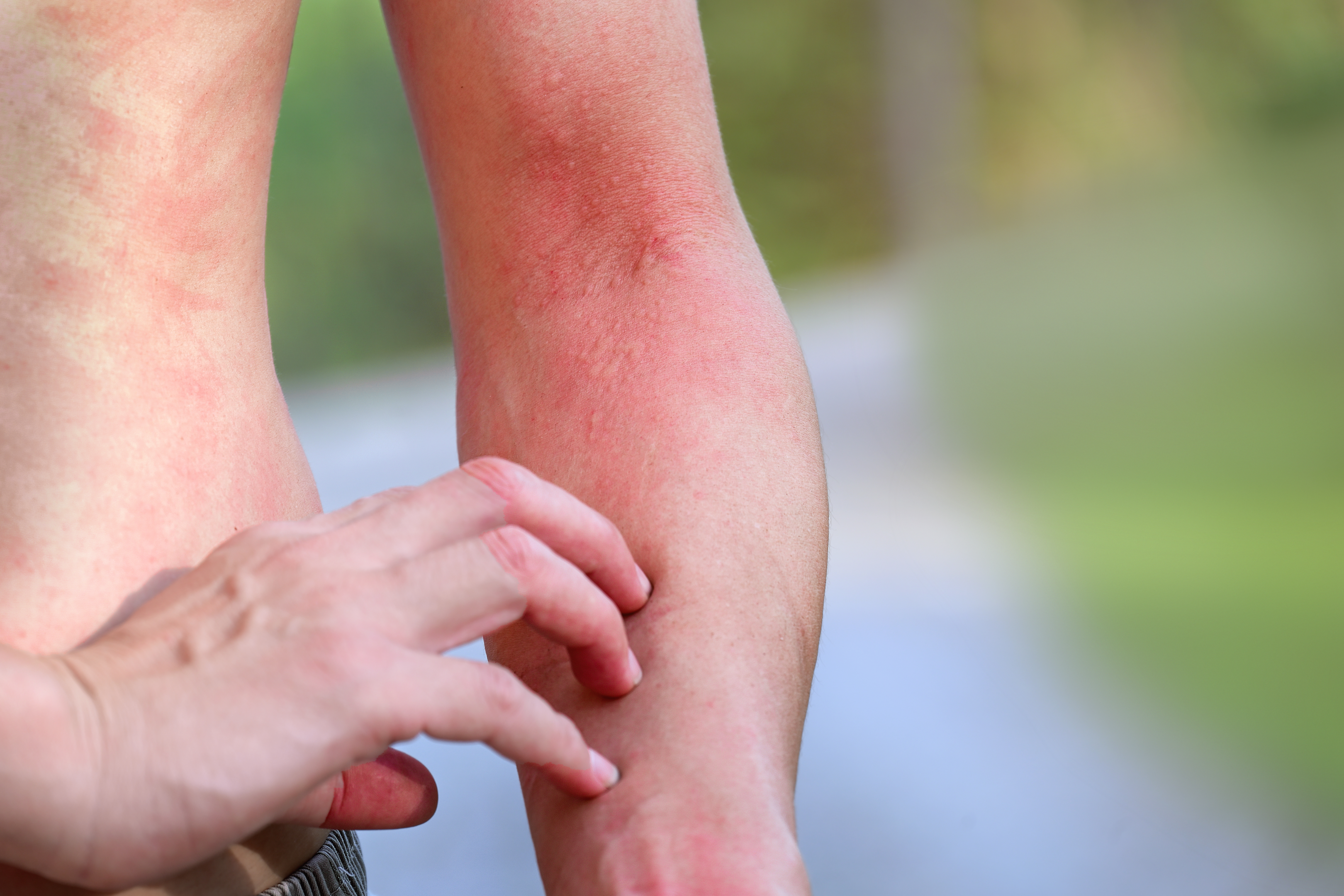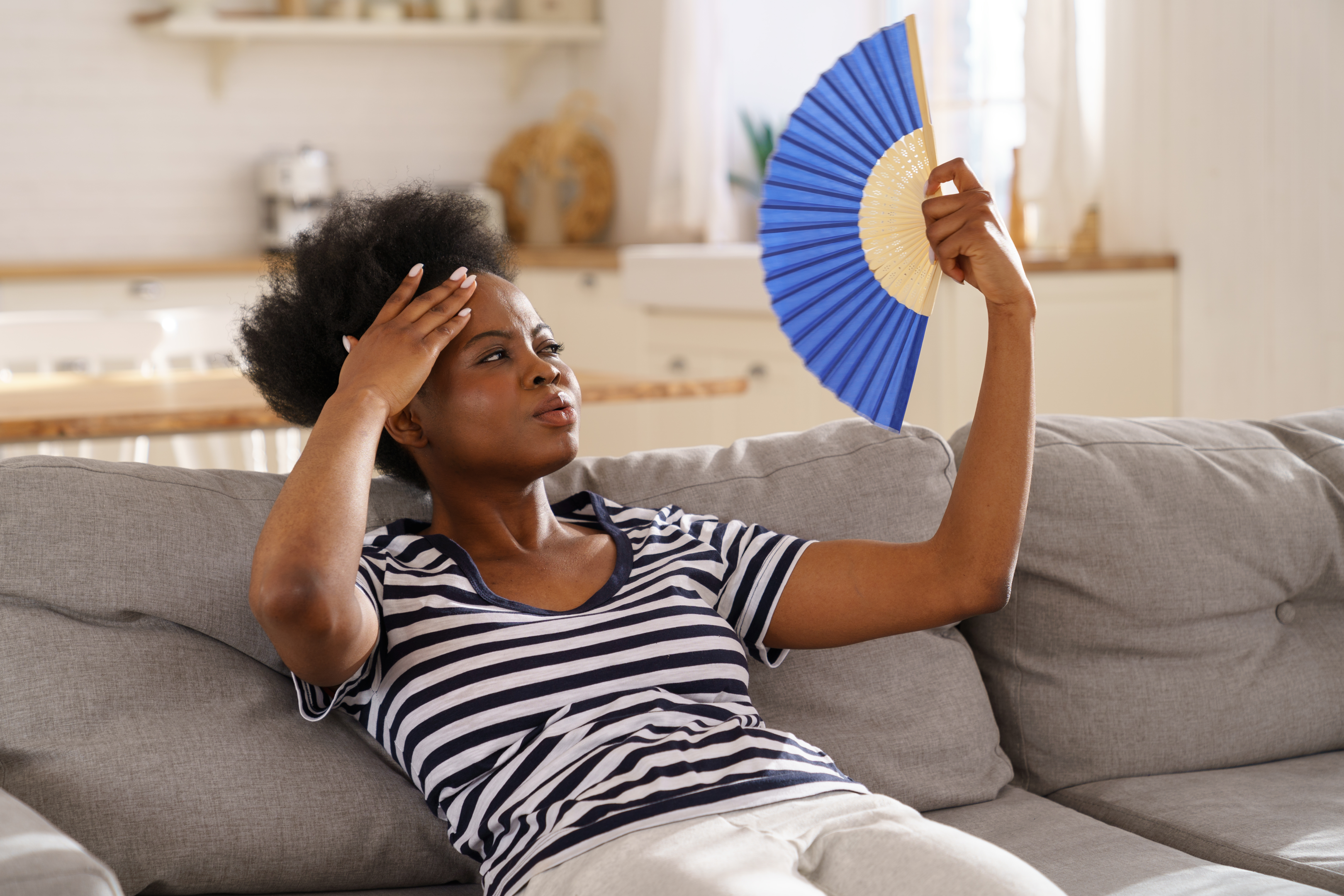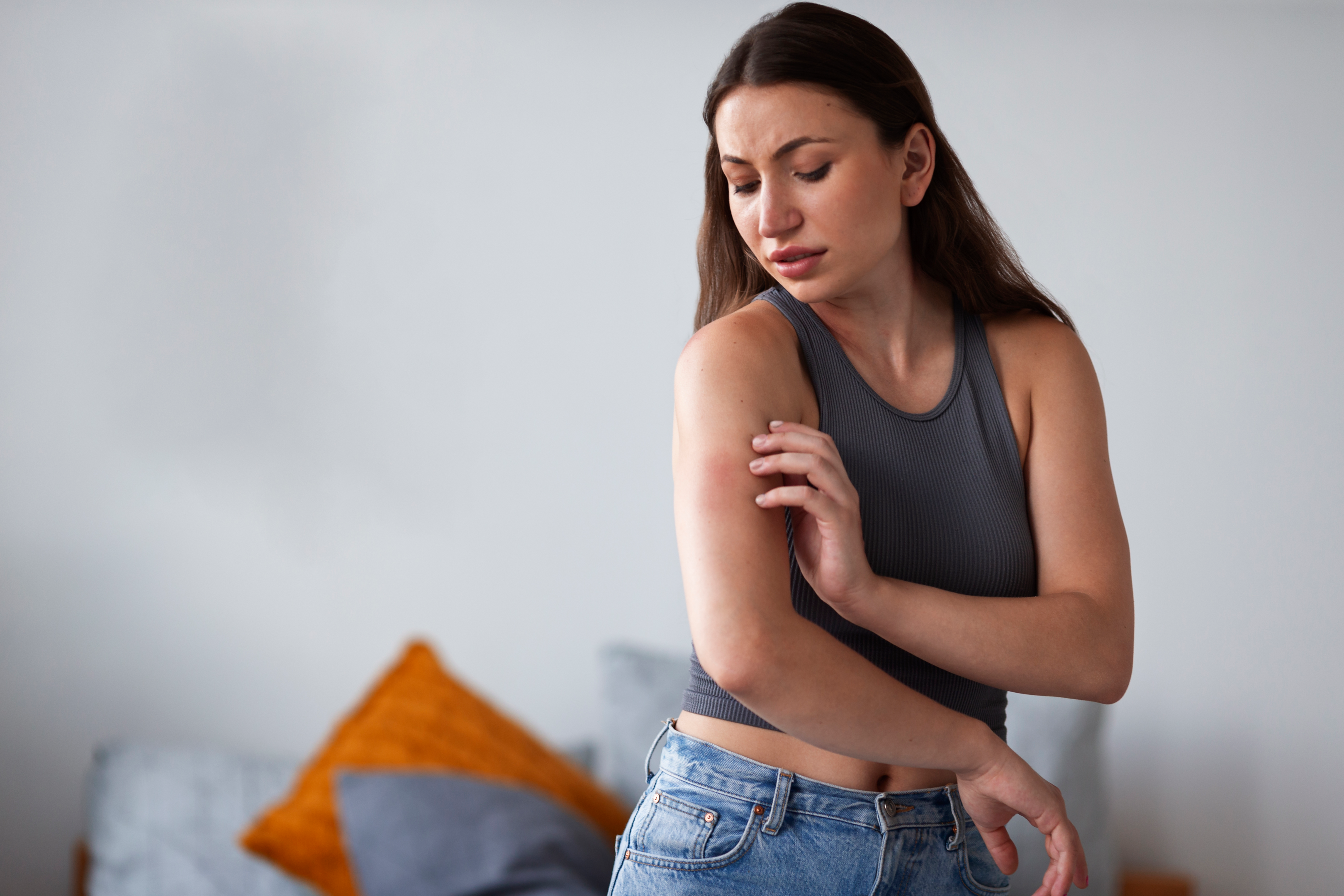What Does an Allergic Reaction Heat Rash Look Like?



A heat rash, commonly called prickly heat or miliaria, may appear on the skin and is an irritation caused by sweat trapped in the sweat glands. A heat rash can be visibly seen as a red or pink rash made up of tiny bumps or blisters and can be itchy or uncomfortable. In severe cases, it can also cause fever, chills, and overall discomfort. It is often seen in areas of the body covered by clothing, such as the chest, neck, and groin, and is more common in hot and humid weather.
Both children and adults are prone to this type of skin irritation and may develop heat rash.
The most typical signs of symptoms of heat rash are pimples on the skin that are red and itchy. They may be accompanied by a feeling similar to burning or stinging. The rash may manifest itself in any part of the body but is most commonly found in areas covered by clothing, such as the chest, back, and underarms. In some cases, the rash may also accompany fever, headache, and fatigue. Additionally, the rash may spread or become more severe if the affected area is scratched or rubbed. In extreme cases, the rash may blister or become infected. It is important to note that symptoms can vary significantly from person to person, and some may experience mild symptoms.
In contrast, others may have a severe reaction. Suppose you suspect you have an allergic reaction to heat rash. In that case, seeking medical attention from a skin specialist as soon as possible is essential to prevent further complications. A dermatologist or allergist can help diagnose and treat the rash.
Read more: Can I get a facial rash from stress?
An allergic reaction heat rash is caused by the blockage of sweat gland ducts, which can occur due to a number of factors. Some of the most common causes of heat rash include:
Overheating: When the body becomes overheated, sweat ducts can become blocked, and trapped sweat can lead to a heat rash.
Clothing: Wearing tight or restrictive clothing can trap sweat against the skin and lead to heat rashes.
Humidity: High humidity can lead to excessive sweating, which can cause sweat ducts to become blocked and result in a heat rash.
Medications: Certain medications, such as those used to treat acne and other skin conditions, can cause a heat rash.

Treatment for an allergic reaction to heat rash typically relieves symptoms and allows the rash to heal. Some of the most effective treatment options include:
Keeping the affected area cool and dry can help reduce inflammation and itching.
Applying a cool compress: A cool compress can be used on the affected area to provide relief from itching and burning.
OTC creams and ointments: You can use over-the-counter creams and ointments like calamine lotion to the affected area to help relieve itching and inflammation.
Avoiding triggers: To prevent the rash from recurring, it is essential to avoid triggers such as overheating, tight clothing or sweaty clothes, and high humidity. This way, you can keep your skin cool.
In some cases, preventing heat rash may require medical treatment. Suppose the rash is severe or accompanied by other symptoms. In that case, it is vital to see a doctor for proper diagnosis and treatment.
Read more: What is hydrocortisone cream used for?
To prevent an allergic reaction to heat rash, it is vital to keep the body cool and dry, especially in hot and humid conditions. Some of the most effective prevention measures include:
Wear loose-cotton clothing: Wearing loose-fitting clothing can help to reduce sweating and prevent the blockage of sweat ducts. You should also avoid wearing clothing made of synthetic fabrics.
Stay in a cool environment: Spending time in a cool environment during warm weather can help keep the body temperature and reduce the risk of overheating.
Stay hydrated: Maintaining proper hydration by consuming a sufficient amount of water will assist in maintaining a cool body temperature and lessen the likelihood of overheating during hot weather.
Avoid triggers: Knowing your triggers and avoiding things that cause a heat rash can help to prevent future outbreaks.
Take a cool shower: You can reduce the possibility of getting a heat rash by simply taking a cool shower.
An allergic reaction to heat rash can be an uncomfortable and unattractive condition. Still, with proper treatment and prevention, it can be effectively managed. If you suspect you are allergic to heat rash, you must see a doctor for appropriate diagnosis and treatment. In the meantime, keeping the affected area cool and dry, avoiding triggers, and using over-the-counter creams and ointments can relieve symptoms.
Read more: Can gluten intolerance cause skin bumps?

It is crucial to distinguish heat rash from other rashes as the treatment for each may differ. Heat rash is characterized by small, red bumps on the skin, often accompanied by itching and burning. Other rashes, such as eczema or psoriasis, may have similar symptoms but typically have different appearances and may require different treatment.
Distinguishing heat rash from other rashes is vital because each condition's treatment may differ. Different types of rashes have different causes and require different treatment methods. For example, heat rash is caused by blocked sweat ducts.
Similarly, Psoriasis is an autoimmune disorder in which the skin cells grow too quickly and form red, scaly patches. It is usually treated with topical creams, light therapy, and oral medications. Therefore, if a rash is misdiagnosed and treated incorrectly, it may not improve or even worsen. Identifying the type of rash is crucial to treat it accurately and effectively.
To learn more about Allergies, read our comprehensive guide that covers: Allergies:, Types, Causes, Symptoms, Diagnosis, and Treatment options.
If you are looking for treatments for hay fever or general allergens, then visit our extensive page with allergy and hayfever medication and tablets.
While most cases of heat rash can be treated with self-care measures, it is important to see a doctor if the rash is severe or if additional symptoms like fever accompany it. You may also need a doctor if the rash does not improve with self-care measures or recurs frequently.
See a skin specialist if your heat rash is severe because they can properly diagnose and treat the condition. Without appropriate diagnosis and treatment, the symptoms of a severe heat rash can be quite uncomfortable and can even lead to secondary infections.
When you see a healthcare provider, they will likely perform a physical examination and ask about your symptoms and medical history. Also, a skin scrape or culture may be done to rule out any infections that might be going on under the skin. Once a diagnosis is made, your doctor can recommend the most appropriate treatment options.
Additionally, the doctor will advise on preventing future outbreaks, such as staying cool, drinking plenty of water, keeping the affected area dry, and avoiding tight clothing. They may also recommend avoiding certain activities or situations that can cause excessive sweating, such as strenuous exercise or being in a humid climate.
Seeing a doctor for the best treatment if your prickly feeling is severe is crucial to diagnose and treating the condition and preventing future outbreaks properly. They can also rule out any underlying medical conditions contributing to the rash's severity. Don't hesitate to seek medical attention if you experience severe symptoms or over-the-counter remedies don't work.
An allergic reaction heat rash is a common skin condition when sweat ducts become blocked, and sweat is trapped under the skin. The most common symptoms include red, itchy bumps on the skin that a burning or stinging sensation may accompany. The rash can be caused by a number of factors, such as overheating, tight clothing, and high humidity. To prevent and treat heat rash, it is essential to keep the affected area cool and dry, avoid triggers, and use over-the-counter creams and ointments. If the rash is severe or accompanied by other symptoms, it is vital to see a doctor for proper diagnosis and treatment.
Not all allergic responses are life-threatening, and a lot of individuals have allergic reactions without ever realizing it. These allergic reactions may often be modest, leading the patient to either ignore them or believe that the symptoms they are experiencing are the result of their just being worn down. Try this easy-to-use allergy home test to determine an allergic reaction in your body.
If you're looking for allergy treatments and tests, browse our Allergy Information Page.










Plus get the inside scoop on our latest content and updates in our monthly newsletter.